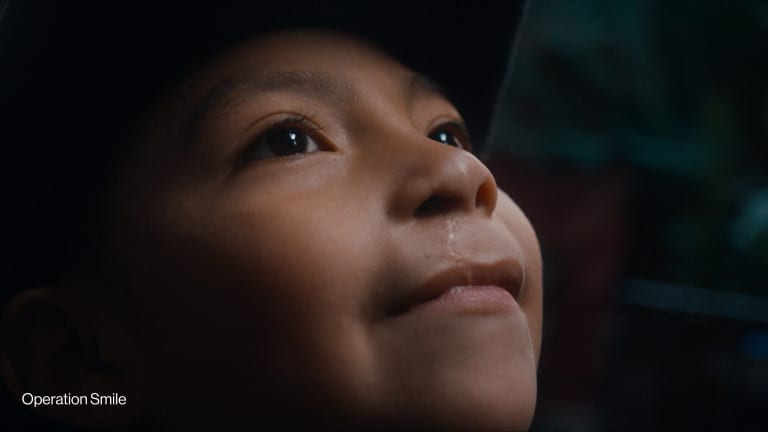
Nelson Mandela was never quite real for me. Growing up in the suburbs of New York City, he seemed to be more of an icon, the symbol of a movement too far removed from my day-to-day life to grasp, than a human being. I later saw his face spray-painted onto buildings, watched marches in Trafalgar Square, and volunteered for the “Free Mandela” movement when I went to high school in London. But it wasn’t until I traveled to South Africa in 1994 that I began to understand the gravity of Mandela’s voice.
When he first took office, Mandela inherited a nation ravaged by pervasive inequality and abject poverty, a population on the brink of civil war, and a healthcare system that could not cope with a rampant virus. Most African countries faced equally difficult challenges upon independence but, unlike many of his fellow leaders, Mandela turned away from violence and retribution. He chose, instead, to forgive the very people who had imprisoned him for almost three decades.
During those years on Robben Island, Mandela studied his jailers. He learned Afrikaans, read their history, and recited their poetry. He wanted to grasp a culture that marginalized even feared black South Africans not because he wanted to overthrow “the enemy” but because he felt that, to rebuild a peaceful, prosperous country, he had to empathize with their experiences. Mandela listened; he gave Afrikaans a voice and allowed every ethnic group to feel heard during a tumultuous transition of power.
Madiba continued to listen when he assumed South Africa’s presidency. Along with Archbishop Desmond Tutu, he established the nation’s Truth and Reconciliation Commission, a model that was at first heavily criticized. Yet he profoundly understood what South Africans needed to move forward — a forum to be heard and restorative rather than punitive justice. When victims and perpetrators shared their stories, they deconstructed and took ownership of their history. Some were reluctant to discuss stories of violence in African National Congress exile camps or unspeakable acts committed by the ANC’s militant faction. But Mandela insisted, believing that hearing these narratives would promote empathy and forgiveness.
The Commission’s success forced us to reconsider our stereotypes of Africa as a continent plagued by violent conflict. South Africa’s democracy, albeit imperfect, continues to be a lasting example to those entrenched in seemingly intractable differences.
At a time when many African governments rigged elections, Mandela choose to step down after just one presidential term, a choice that reflected his commitment to his country and his dream. Yet Mandela’s journey ended neither the day he left office nor the day he died. He spent his remaining years encouraging people around the world to continue his work.
‘Ubuntu’ spirit
At the Ubuntu Education Fund, an organization that I founded in 1999 with South African schoolteacher Malizole Gwaxula, our work is guided by Mandela’s spirit of “ubuntu,” the philosophy that our humanity is rooted in others. We believe, in the midst of an industry fixated on quantifying development, that each number, each statistic represents a human being, who should be granted the same dignity that we afford to our children and families.
Operating at society’s most basic unit, the family, Ubuntu provides Port Elizabeth’s township children with what all children deserve — everything. Working from within the Ubuntu Center, our statement to the world that quality healthcare and education is a right not a privilege, we provide comprehensive household stability, health, and educational support to 2,000 children. We are committed to Mandela’s vision of empowering our families to break out of the same economic slavery that gripped so many during apartheid.
But most importantly, we have never stopped listening to our community. When foreign aid flooded into post-1994 South Africa, I watched as Western governments and aid workers arrive in townships, convinced that they had the solutions to the challenges that these communities faced. They believed that, because they came from democracies with strong economies, they didn’t have to ask questions. They already had all the answers.
We, however, do not have all the answers. Rather, we will continue to listen to the voices of a community’s shared experiences that we, as Ubuntu’s leadership, could never fully understand. We will respect their truths. We will learn from their stories and refine the Ubuntu model whenever necessary. We will strive not to hide our failures but to admit to our mistakes openly. We will be observant, delving deeper into South African culture every day.
Nelson Mandela is the reason why I first found my way to South Africa in 1994 and why I never left. He reminded us everyday what it means to be human. He was not a perfect man by any means, but that’s what drew us to him even more: that we could all, as sinners, keep on trying to be saints. Mandela dedicated his life to the things that so rarely come easy to us. His long walk was a quiet one of listening — one for forgiveness, freedom, and peace.
Read more development aid news online, and subscribe to The Development Newswire to receive top international development headlines from the world’s leading donors, news sources and opinion leaders — emailed to you FREE every business day.








